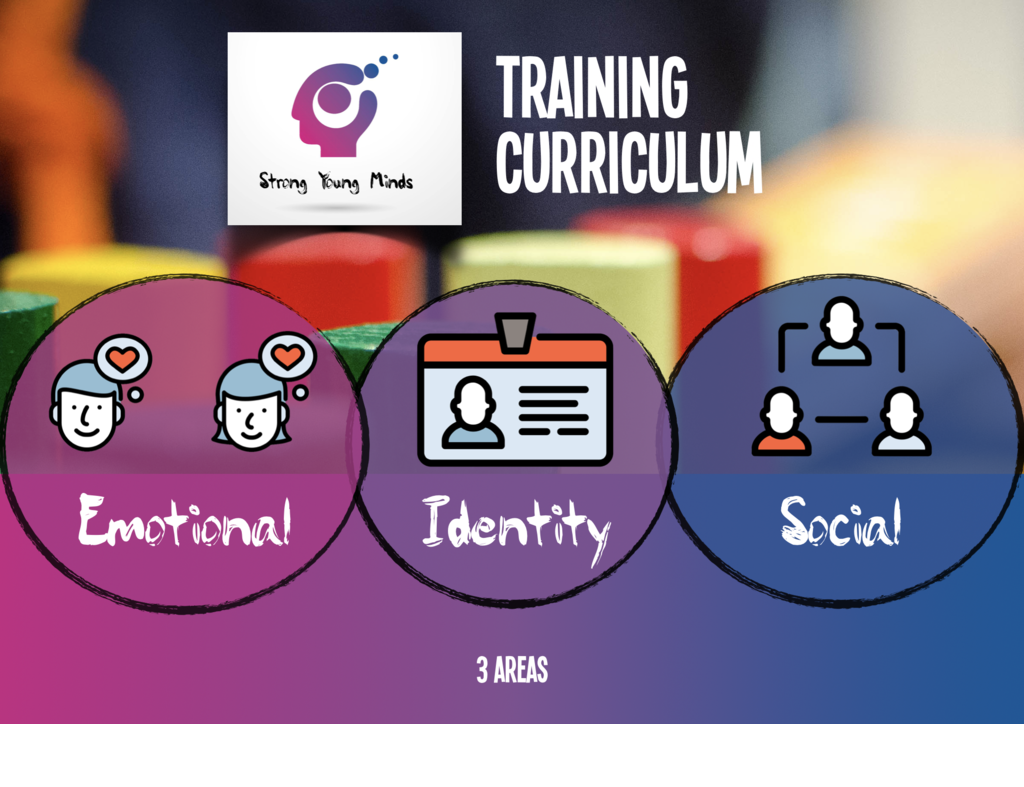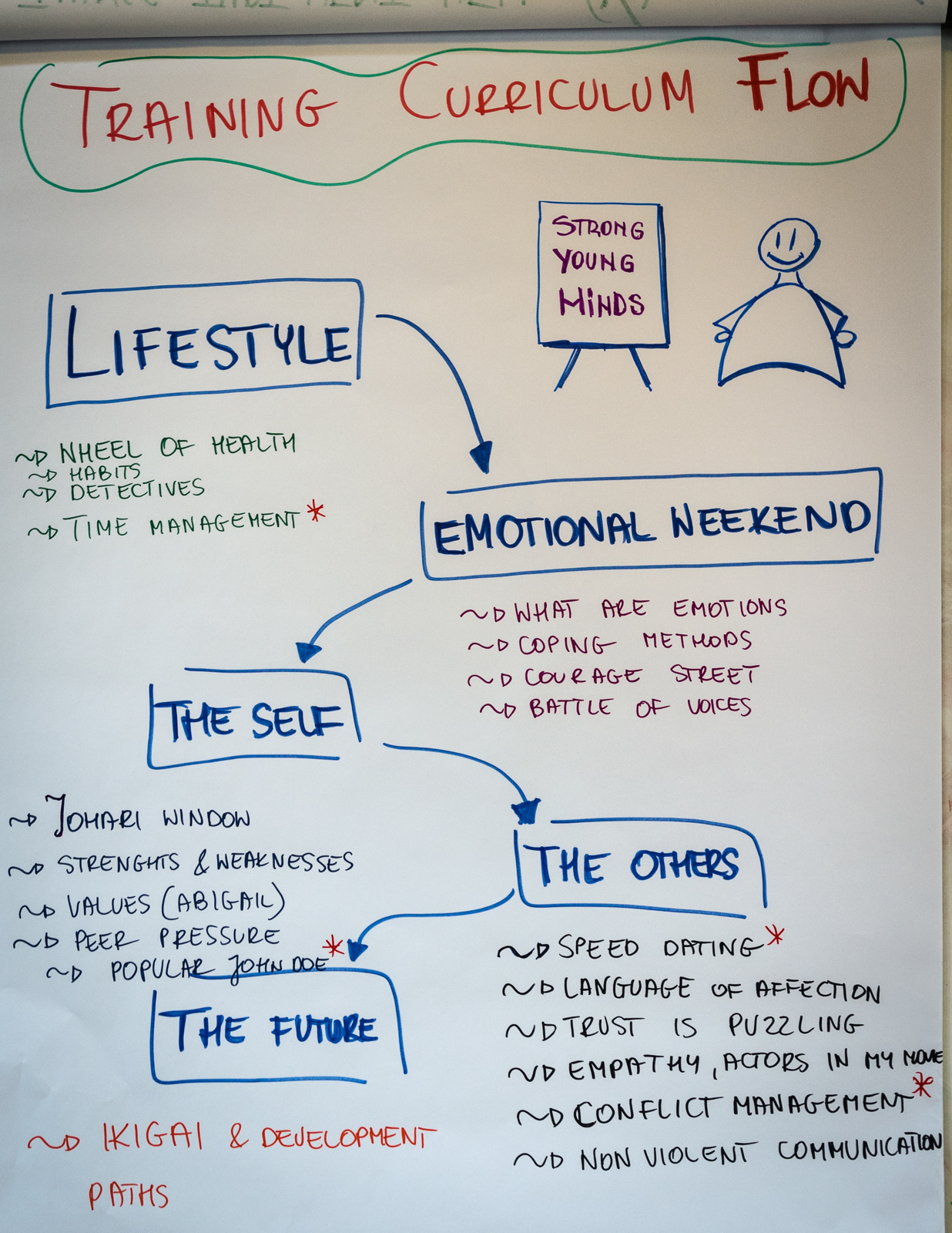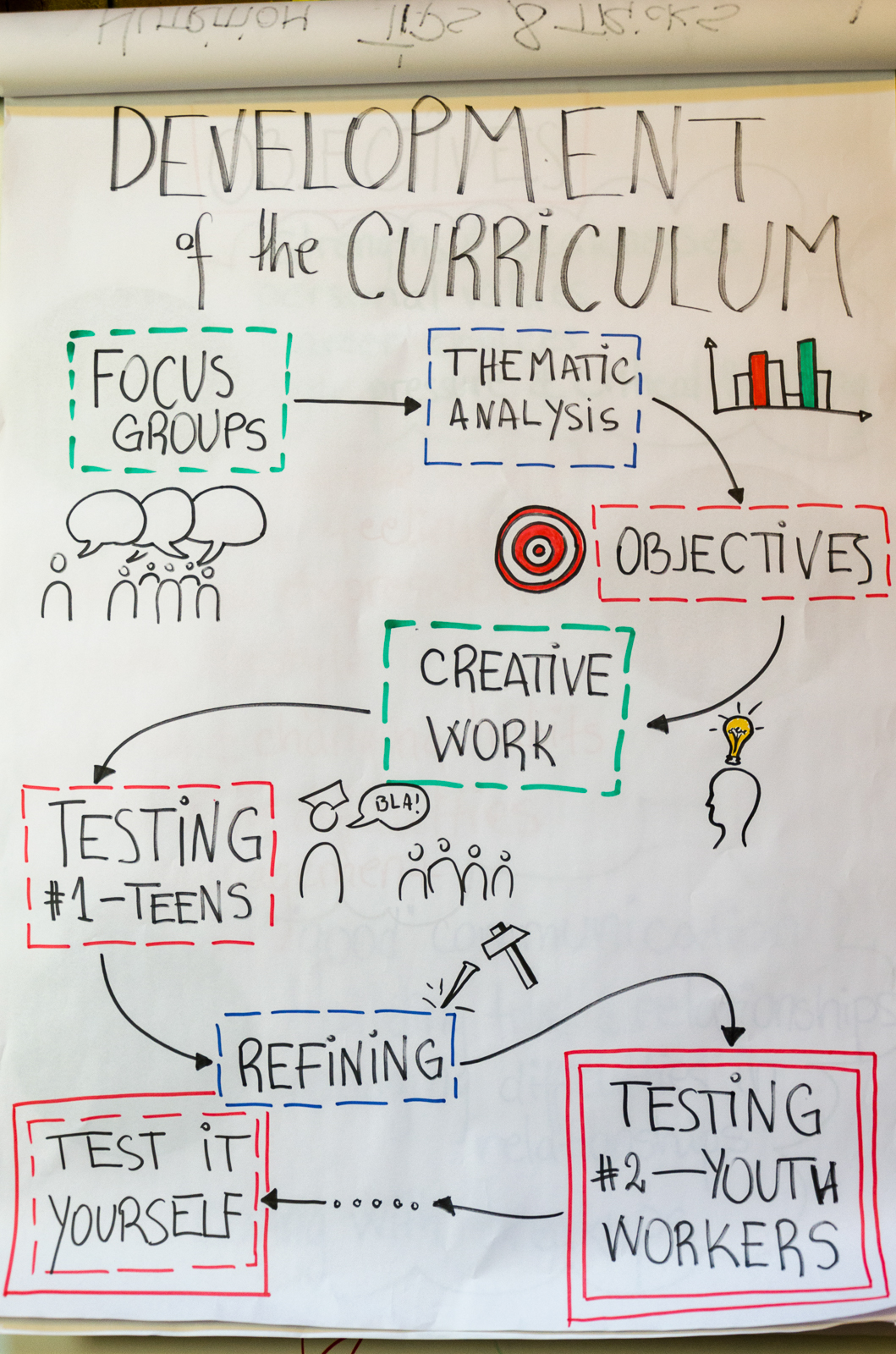The training curriculum have focused on developing essential mental health competences for teenagers, such as: building a balanced personal identity, emotional management, maintaining meaningful relationships, living a healthy lifestyle. The underlying theoretical concepts have been taken from the latest scientific research in psychology, education and lifestyle.

The curriculum has a coherent but flexible structure that will allow it to be used in at least three ways:
As a three days compact training.
As a module of weekly or bi-weekly learning sessions.
As separate autonomous sessions.

The methodology used in the curriculum’s activities rely on the principles of non-formal education, and following a learning cycle based on experience. The most suitable methods for the specific topics addressed in each session have been chosen and widely tested. Diverse methods have been included in order to respond to the various learning styles of the young people.
The methods range from work in groups, role plays, to methods using arts, simulations, open space etc, the limit of the possibilities being given only by the creativity of the project team members. We believe any activity can become a non-formal education activity, as long as it has clear learning objectives behind it, relevant for the topic and it’s followed by an efficient debriefing.
The development of the training curriculum began from the data collected in the needs analysis, through the focus groups with teenagers and youth workers.

